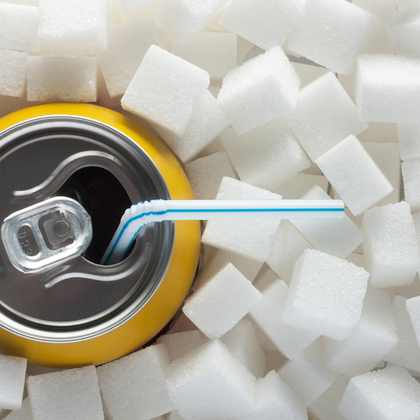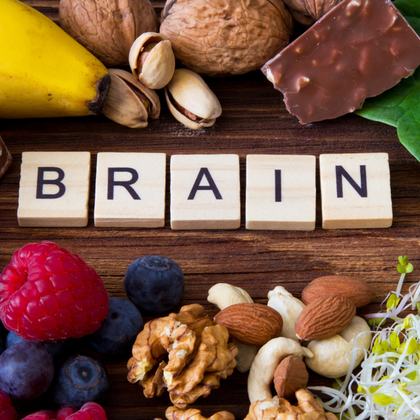
During the holy month of Ramadan, Muslims around the world fast between sunrise and sunset each day. This means not eating or drinking during daylight hours but having one light meal just before dawn (this is called suhoor) and another usually more substantial meal after sunset (iftar). Fasting during Ramadan also means not smoking, not having sex and not taking oral or nasal medicines (see ‘Taking medicines’, below).
All healthy adult Muslims – that is, all who have reached puberty – fast during Ramadan, which takes place at a different time each year. The reason the dates for Ramadan change is that in the Islamic calendar, each month begins with the new astronomical moon. In fact, because of the differences between the Islamic and Gregorian calendar (the calendar followed in the West) Ramadan takes place around 11 days earlier each year.
Some people, however, are exempt from fasting during Ramadan, including:
-
Anyone who cannot fast because of physical or mental illness, or because they are very frail
-
Women having their period
-
Women who are pregnant or breastfeeding
-
People who are travelling
During the coronavirus pandemic, many healthcare workers who provided care to Covid-19 patients and who worked long shifts were also exempt from fasting (i).
However, Ramadan isn’t just about fasting. Muslims who observe Ramadan also aim to carry out more spiritual devotional acts. According to the Muslim Council of Britain, this includes things like prayer, giving charity and strengthening family ties (ii). Indeed, fasting is thought to help you reflect on spiritual matters because it makes you become less preoccupied with bodily appetites (iii).
During Ramadan Muslims also share food with friends, family and neighbours. When there are no restrictions on gatherings, however, Ramadan can be a particularly busy time, with many Muslims inviting guests to take part in the evening meal (iftar) that breaks the fast.
Is fasting during Ramadan good for you?
According to the UK government, fasting during Ramadan can be good for your health if done correctly (iv). Besides the spiritual benefits, it can help you achieve a healthy body weight. But if you fast for too long, it can be unhealthy, as the protein stored in your muscle starts breaking to produce energy. This is why anyone observing the fast during Ramadan is advised to have both meals, and not skip the pre-dawn meal (suhoor).
What happens in your body when you fast?
According to the Ramadan Health Guide , which is supported by the NHS, your body enters a fasting stage about eight hours after your last meal, as this is when your digestive system has finished absorbing nutrients from your food. Your body uses up your glucose stores for energy, but when that glucose runs out (because you haven’t eaten anything to top them up), your body starts getting its energy by burning fat. If you fast continually for too long, however, your body starts burning muscle protein.
During Ramadan, each day’s fast lasts from dawn until dusk, which means there’s plenty of time to eat outside fasting hours and replenish your glucose stores. And since you’ll still be getting energy from glucose every day, there’s a much-reduced chance your body will start burning protein for fuel – this means you won’t lose muscle mass (though you may well lose fat). Then after a few days of fasting, it’s thought your body produces higher levels of feel-good hormones called endorphins, which can help you feel better and more alert (iii).
What food should you eat during Ramadan?
While it’s important to eat both suhoor and iftar while fasting during Ramadan, many people may overindulge, especially when breaking their fast after sunset. However, breaking your fast with a feast can lead to weight gain rather than weight loss. That’s why health experts recommend eating a healthy, balanced iftar. According to dietitians at the World Health Organization (WHO) (v), this includes:
-
Plenty of vegetables to provide vitamins and nutrients
-
Whole grains for energy and fibre
-
Protein such as fish, skinless chicken, grilled or baked lean meat or vegetarian alternatives
-
Limited amounts of fatty foods such as fatty meats, pastry and butter; also avoid frying or deep-frying foods, but try steaming, baking or stir-frying in a small amount of oil instead (use unsaturated oils such as vegetable or olive oil rather than saturated fats such as palm oil or ghee)
-
Watermelon, peach or nectarine (or other seasonal water-containing fruit) for dessert rather than sweets that contain lot of sugar syrup
-
Herbs to season your foods rather than large amounts of salts, since having too much salt can make you thirstier during your fast (also avoid salty foods such as processed foods, salted meat and fish, olives, pickles, salty snacks and cheeses, and salty spreads and sauces)
WHO experts also suggest breaking the fast by eating three dates, since dates are an excellent source of fibre (they also contain natural sugars and minerals including potassium). Their example of a typical iftar is:
-
Home-made vegetable soup (not from soup powder)
-
Green salad or other vegetable salad
-
Stuffed vegetables
-
Baked chicken breast
Meanwhile suhoor – which is eaten before the beginning of the fast each day – is a light breakfast that should ideally include vegetables, slow-releasing carbohydrate foods such as whole grains to make your energy last longer during the fasting hours, and protein-rich foods such as dairy products or eggs. An example of a suhoor may, for example, include:
-
Two slices of wholemeal bread
-
Hard-boiled egg or vegetable omelette
-
Sliced vegetables (two different kinds)
-
Cheese (ideally a low-salt variety such as goat’s cheese, fresh mozzarella, cream cheese or ricotta)
-
Herbal tea
Keep your fluid levels up
While you’re fasting you may become mildly dehydrated because you won’t be drinking any fluids. So when you break your fast each evening, try drinking plenty of water to replace the fluids you’ve lost during the day. If you like it, a little fruit juice can help, since the natural sugars will give you energy – but don’t have too much. You can also get lots of water from your food as well as your drinks. For instance, many fruits and vegetables provide a good amount of water, or you could try having foods with a high liquid content such as soup or natural yoghurt.
It’s also important to drink plenty of fluids and eat fluid-rich foods before daybreak for your suhoor. Try to avoid drinks that contain caffeine such as tea and coffee too, as caffeine is a diuretic (this means you can lose water through urination faster, which could make you more likely to become dehydrated during your fast).
Not eating or drinking anything for some time can also make your mouth dry, which may lead to bad breath. This is why it’s important to stick to your usual oral hygiene routine, which should involve brushing your teeth twice a day and flossing (using a tongue scraper can also help remove bacteria that cause bad breath).
But does brushing your teeth during daylight hours mean you’d be breaking your fast? According to many scholars, brushing your teeth during fasting is fine if you really have to (vi) – though try using as little toothpaste as possible (better still, try brushing without any toothpaste), and always spit the toothpaste out afterwards (swallowing would mean breaking your fast).
Should you exercise during Ramadan?
If the idea of exercising when you don’t eat or drink anything for most of the day sounds tough, then you’re not alone. Indeed some people may not do much exercise at all during Ramadan, says the WHO (v). However that can be a problem, as not doing much exercise for a whole month can have a negative impact on your fitness goals, not to mention lead to weight gain (especially if you’re also eating too many of the wrong foods at iftar).
It’s a good idea to keep yourself as fit as possible while you’re fasting, but not to overdo it and make yourself ill (for instance, avoid trying to push yourself or setting any new personal bests). Try to stick to the minimum guidelines for physical activity, that is to be physically active for 150 minutes each week (for instance, exercise for half an hour on five days of the week).
The timing of your exercise could be helpful too. Some experts recommend having a light exercise session – a brisk walk or gentle jog, for instance, or using the exercise machines at the gym without pushing yourself too much – just before sunset, so you can replace the energy you’ll burn soon afterwards when you break your fast at iftar (vii). Similarly, if it suits you, you could exercise when you get up before dawn before having your morning meal, as your energy stores will have had a chance to build up overnight.
If the only time you have for exercise is during the middle of the day, however, try to keep your session as short and gentle as possible, as it will be some time before you’ll be able to refuel. If you sweat too much, for example, and can’t drink anything until the evening, it could make you seriously dehydrated.
If you do become dehydrated at any point, whether exercising or not – if you are too dizzy to stand up, for instance, or if you faint or feel disorientated – it’s important to break your fast immediately and drink moderate quantities of water, ideally with some mixed with oral rehydration salts (you can get these from pharmacies).
Similarly if you feel dizzy or nauseated while exercising, stop immediately. Also try not to do any intensive or vigorous exercise while fasting – fast running, for instance, or cycling up hills – as this can put an extra strain on your body.
Exercising with a health condition
If you have a long-term condition but you’re healthy enough to observe the fast, it’s a good idea to be extra cautious when exercising, even if you have a good level of fitness. Try to make sure you exercise at a low level of intensity, and stop straight away if you feel unwell. If you don’t feel up to exercising because of your condition, just wait a day or two until you feel better and more able to be active.
Taking medicine during Ramadans
Fasting during Ramadan also means not taking any oral or nasal medicines. Some people who are unwell and need to take regular medication may be exempt from fasting. But if you are fasting, here’s what you should know about taking medicines:
Change your medication times: Speak to your GP if you take medicines for an ongoing condition, as they may be able to change your prescription so you can take your medicines outside of your fasting times. If, however, the only medication suitable for you needs to be taken during the day, you shouldn’t fast (iii). If this medication is for a short-term illness, you can make up for not fasting during Ramadan by fasting on other days when you’re well again.
Diabetes guidelines: People who need to inject insulin to control their diabetes [ADD LINK] – those with type 1 diabetes, for instance – are advised not to fast because of the risk to their health of not taking their insulin regularly. If you take tablets for diabetes and your condition is under control, you may be able to fast if you don’t have to take the tablets while you’re fasting – but again, speak to your GP beforehand to make sure it’s safe for you to do so and also for advice on keeping your diabetes under control. If it’s safe for you to fast with diabetes, remember to monitor your blood glucose levels regularly to avoid any problems.
Other medicines: Taking oral and nasal medicines, including inhalers, nebulisers, nasogastric intubation and bronchoalvelolar lavage, is not allowed during fasting. However other forms of medicines may not break the fast, including:
-
Injections
-
Eye or ear drops (unless the tympanic membrane is perforated)
-
Vaginal pessaries
-
Urethral infusions
-
Skin patches (such as nicotine patches)
-
Concentrated oxygen
-
Epidural analgesia
-
Haemodialysis (ie kidney dialysis)
If you’re in any doubt about what you can and cannot take while fasting, you may want to seek advice from your Imam.
Asthma inhalers: Muslim scholars are divided on the use of inhaled asthma medicines, with some believing they don’t break the fast and others believing they do (iii). If you decide not to use your inhaler during fasting, ask your GP if there’s a longer-acting inhaler you could use during the times when you’re not fasting. It’s also important to make sure you keep your reliever (blue) inhaler with you at all times just in case you have an attack. Meanwhile, if not using your inhaler during fasting has made your symptoms worse, talk to your GP or asthma nurse without delay.
Quitting the habit: Ramadan is an ideal time to give up smoking. If you’ve decided to quit, remember you can still get help in the form of nicotine patches, which you can use while fasting. These may be useful as they can help relieve your cravings for nicotine.
Headache and migraine: It’s not unusual for some people to get a severe migraine when they skip meals or fast. In such cases, when migraines are not or poorly controlled, people are advised not to fast. If, on the other hand, you have migraines but they’re under control (with the use of medication and lifestyle factors, for instance), you may be able to fast – ask your doctor to tell you more about controlling your migraines. A migraine or a headache can also be a sign of mild to moderate dehydration (viii). Or if you’ve given up tea and coffee during Ramadan, a bad headache can be a sign of caffeine withdrawal (the good news is caffeine-withdrawal headaches should only last a few days). If, however, your headache persists and is severe, see your GP.
Digestive upsets: If you regularly take medicines for indigestion or heartburn, it may be a good idea to take them before dawn with your suhoor. Also try to reduce your risk of having any digestive upsets by avoiding oily, deep-fried or very spicy food with your iftar, and by not smoking or drinking caffeine when you’re not fasting. If you tend to get heartburn at night, the NHS suggests sleeping with your head raised on an extra pillow or two. Eating healthily and drinking plenty of fluids when you’re not fasting can also help prevent other problems that may arise, such as constipation.
For more information about a range of health conditions and healthy lifestyle advice, why not take a look around the rest of our health library.
References:
-
Available online: https://mcb.org.uk/wp-content/uploads/2020/04/MCB_Ramadan-Health-Factsheet-2020.pdf
-
Available online: https://mcb.org.uk/resources/ramadan/
-
Available online: https://warwick.ac.uk/services/equalops/a-z/a_guide_to_healthy_fasting.pdf
-
Available online: https://www.gov.uk/government/news/healthy-fasting-during-ramadan
-
Available online: http://www.emro.who.int/nutrition/nutrition-infocus/dietary-recommendations-for-the-month-of-ramadan.html
-
Available online: https://www.bbc.co.uk/news/uk-44107850
-
Noorbahi MH. Physical Activity During the Month of Ramadaan Fasting. The Experiment. 2013 Feb;7(3): 413-416. Available online: https://www.researchgate.net/publication/257355739_PHYSICAL_ACTIVITY_DURING_THE_MONTH_OF_RAMADAAN_FASTING
-
Available online: https://headaches.org/2016/07/07/headaches-and-dehydration/
Related Posts
Disclaimer: The information presented by Nature's Best is for informational purposes only. It is based on scientific studies (human, animal, or in vitro), clinical experience, or traditional usage as cited in each article. The results reported may not necessarily occur in all individuals. Self-treatment is not recommended for life-threatening conditions that require medical treatment under a doctor's care. For many of the conditions discussed, treatment with prescription or over the counter medication is also available. Consult your doctor, practitioner, and/or pharmacist for any health problem and before using any supplements or before making any changes in prescribed medications.

Christine
Christine Morgan has been a freelance health and wellbeing journalist for almost 20 years, having written for numerous publications including the Daily Mirror, S Magazine, Top Sante, Healthy, Woman & Home, Zest, Allergy, Healthy Times and Pregnancy & Birth; she has also edited several titles such as Women’ Health, Shine’s Real Health & Beauty and All About Health.
View More



